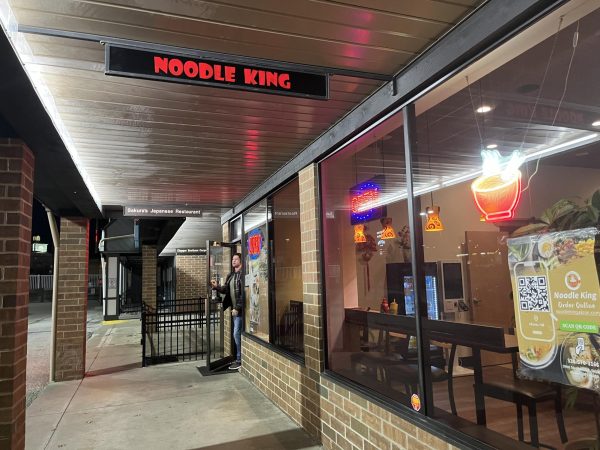Practicing resilience in this time of uncertainty: Lessons learned from a former Navy SEAL
In today’s society, people are quick to cast blame, feel sorry for themselves and react emotionally. Especially today, as America battles an illness the likes of which has not been seen in our lifetime, people need to use perspective and react with reason, not emotion. Being a high school senior, I believe these principles can be extremely useful when coping with the fact that I may not be able to experience many of the significant, memorable events usually associated with graduating high school.
Congressman and former Navy SEAL Dan Crenshaw delivers an accurate and timely critique of American “Outrage Culture” in his book Fortitude: American Resilience in the Era of Outrage, urging Americans to use perspective and consider the facts when developing or acting on their opinions.
After graduating college in 2006, Crenshaw served in the United States Navy SEALs. In 2012, while on his third deployment, Crenshaw was hit with an IED blast that left his right eye destroyed, and his left eye badly damaged. Miraculously, Crenshaw regained vision in his left eye, and in 2016 after two more deployments was medically retired from the US Navy. After leaving the military, Crenshaw completed his Masters in Public Administration at the Harvard Kennedy School of Government. In 2018 Crenshaw was elected as a member of the United States Congress in Texas’ Second Congressional District.
In his book, Crenshaw explains that in today’s society, outrage has become a virtue. He explains that too often people react with raw emotion rather than rational thought. Crenshaw writes that outrage is rarely “productive, virtuous, or useful. It is an emotion to overcome, not accept, and overcoming it requires mental strength.” He later writes that Fortitude is a book about acquiring that mental strength.
During a time of crisis like the one Americans are going through now with COVID-19, the lessons in Crenshaw’s book become invaluable, especially to high school students missing out on many of their milestone activities before they go off to college. Being a high school senior myself, I believe Crenshaw’s book offers two amazing pieces of advice for our situation.
First, affected students should exercise perspective when viewing their situation. When our grandparents were our age, they were not asked to sit at home to prevent the spread of a virus; they were asked to get on a plane to Vietnam and serve in one of America’s longest, most deadly wars. Many of our great-grandparents spent their senior year on the beaches of Normandy, fighting to liberate France. Our generation is not immune to this type of hardship.
Ohio has been under a stay-at-home order for over thirty days now. On average during a thirty-day period, over 216,000 children die of malnutrition. It is okay to be upset that you will be missing out on many of the traditional events high schoolers get to participate in, I know I am, but put it in perspective, understand how much worse your situation could be and be grateful for what you do have. In the words of Crenshaw, “Someone else has always had it worse than you, even when you get blown up in the face.”
Second, we would be wise to be wary of acting emotionally in response to decisions being made due to coronavirus. Oftentimes our first reaction to a negative event is to blame someone. In Fortitude, Crenshaw cautions against this reaction. He encourages people to view the situation unemotionally, and before acting with outrage to a decision that has been made by someone, consider their point of view. Outrage causes panic and does not lead to productive dialogue. As Crenshaw writes in his book, “Calm breeds calm, panic breeds panic.” If you are looking to be a leader in this situation, outrage, though the easy path, is not the right one. Lead by being respectful, being calm, and contributing to a valid solution. For everyone else, before you join the outrage mob. Stop, and as Crenshaw says “be still.” Think of all perspectives, and after doing all necessary thinking you can react. Do not act out of emotion.
Crenshaw writes it in his title. Americans are resilient. We will get through this, But let’s use perspective, let’s not become outraged, and let’s leave this crisis stronger and more together than we entered it.


